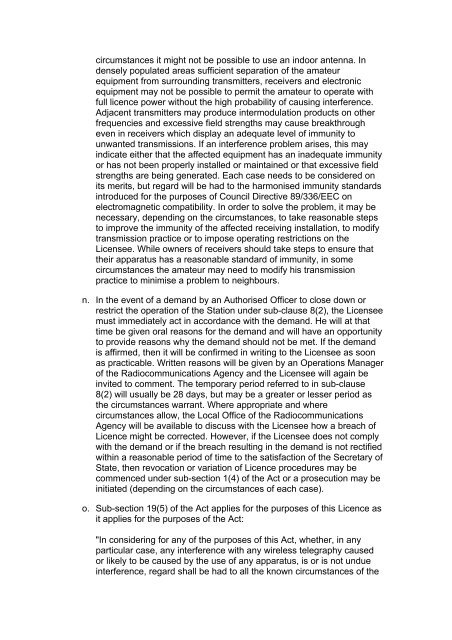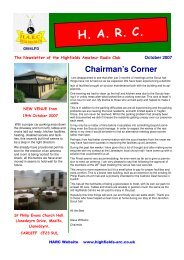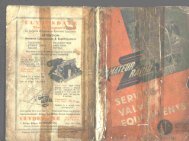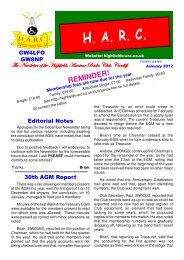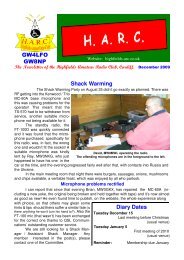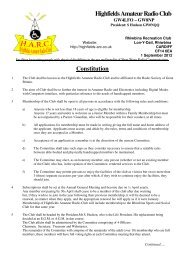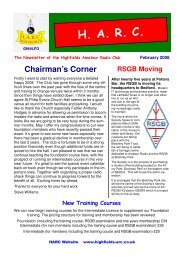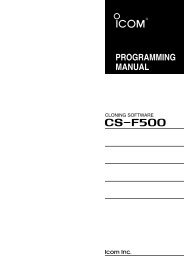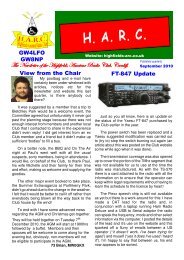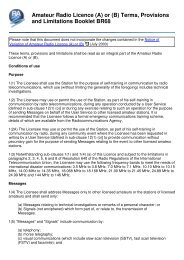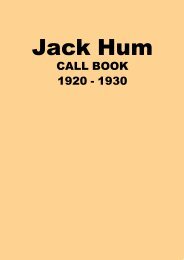BR68/F - Highfields Amateur Radio Club
BR68/F - Highfields Amateur Radio Club
BR68/F - Highfields Amateur Radio Club
Create successful ePaper yourself
Turn your PDF publications into a flip-book with our unique Google optimized e-Paper software.
circumstances it might not be possible to use an indoor antenna. In<br />
densely populated areas sufficient separation of the amateur<br />
equipment from surrounding transmitters, receivers and electronic<br />
equipment may not be possible to permit the amateur to operate with<br />
full licence power without the high probability of causing interference.<br />
Adjacent transmitters may produce intermodulation products on other<br />
frequencies and excessive field strengths may cause breakthrough<br />
even in receivers which display an adequate level of immunity to<br />
unwanted transmissions. If an interference problem arises, this may<br />
indicate either that the affected equipment has an inadequate immunity<br />
or has not been properly installed or maintained or that excessive field<br />
strengths are being generated. Each case needs to be considered on<br />
its merits, but regard will be had to the harmonised immunity standards<br />
introduced for the purposes of Council Directive 89/336/EEC on<br />
electromagnetic compatibility. In order to solve the problem, it may be<br />
necessary, depending on the circumstances, to take reasonable steps<br />
to improve the immunity of the affected receiving installation, to modify<br />
transmission practice or to impose operating restrictions on the<br />
Licensee. While owners of receivers should take steps to ensure that<br />
their apparatus has a reasonable standard of immunity, in some<br />
circumstances the amateur may need to modify his transmission<br />
practice to minimise a problem to neighbours.<br />
n. In the event of a demand by an Authorised Officer to close down or<br />
restrict the operation of the Station under sub-clause 8(2), the Licensee<br />
must immediately act in accordance with the demand. He will at that<br />
time be given oral reasons for the demand and will have an opportunity<br />
to provide reasons why the demand should not be met. If the demand<br />
is affirmed, then it will be confirmed in writing to the Licensee as soon<br />
as practicable. Written reasons will be given by an Operations Manager<br />
of the <strong>Radio</strong>communications Agency and the Licensee will again be<br />
invited to comment. The temporary period referred to in sub-clause<br />
8(2) will usually be 28 days, but may be a greater or lesser period as<br />
the circumstances warrant. Where appropriate and where<br />
circumstances allow, the Local Office of the <strong>Radio</strong>communications<br />
Agency will be available to discuss with the Licensee how a breach of<br />
Licence might be corrected. However, if the Licensee does not comply<br />
with the demand or if the breach resulting in the demand is not rectified<br />
within a reasonable period of time to the satisfaction of the Secretary of<br />
State, then revocation or variation of Licence procedures may be<br />
commenced under sub-section 1(4) of the Act or a prosecution may be<br />
initiated (depending on the circumstances of each case).<br />
o. Sub-section 19(5) of the Act applies for the purposes of this Licence as<br />
it applies for the purposes of the Act:<br />
"In considering for any of the purposes of this Act, whether, in any<br />
particular case, any interference with any wireless telegraphy caused<br />
or likely to be caused by the use of any apparatus, is or is not undue<br />
interference, regard shall be had to all the known circumstances of the


